The world’s most magical Christmas markets for the ideal festive break
Submit to the festive spirit with our pick of the world’s best Christmas markets


The festive period is the perfect antidote to dropping temperatures and dark nights as autumn turns to winter. What could be cosier, after all, than streets strewn with twinkling lights and glittering decorations?
Preparations start long before the 25 December – the first shops start doing Christmas deals and selling gifts after Halloween, if not before – but Christmas is officially around the corner when the annual markets start popping up.
Christmas markets, whether traditional or contemporary, are often the defining feature of December in many cities. From Strasbourg to Chicago, the weekends leading up to the big day are dominated by visits to markets and winter villages, tucked up in cosy drinking spots after strolls around log cabins and chalet-style stalls to grab last-minute presents, and trying to keep warm with some hearty German cuisine or gluhwein.
Whether you’re gift-hunting, day-drinking, going on a wander with the family or simply looking to get in the festive spirit, markets are a care-free, enjoyable festive experience – and with so much variety across Europe and beyond, a trip to a market abroad is the perfect pre-Christmas getaway. Read on for a selection of the best.
Cologne, Germany
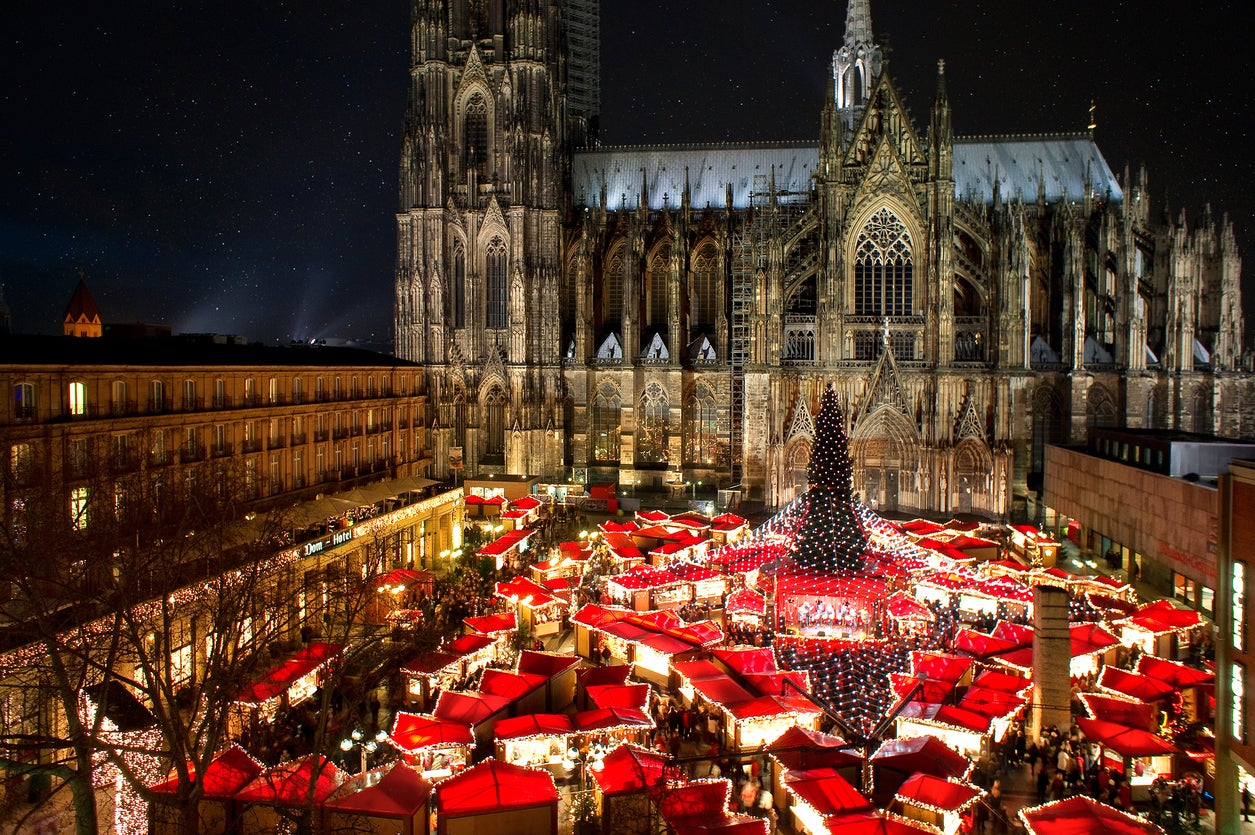
One of the most well-known markets in Germany, Cologne’s Kölner Dom sits in the shadow of the imposing, Unesco-listed cathedral. The heart of Cologne’s most picturesque market is a giant Christmas tree surrounded by dozens of mini chalets, while the stage is the site of over a hundred performances during the festive season.
There are a whopping 11 other markets in the city, including the Stadtgarten Christmas market in Cologne’s oldest park, Heinzels Winter Fairytale, which focuses on the legend of Cologne’s brownies (friendly household spirits called “Heinzelmännchen”) and is home to an ice rink, and a singing Santa Claus in the Advent village at Cologne cathedral.
Where to stay: Sandwiched between Cologne's old town and the arty Belgian Quarter, stylish design hotel Ruby Ella is a great place to spend the night.
Price: From £127 per night
Read more: Why Berlin is still Europe’s chaotic capital of liberty
Vienna, Austria
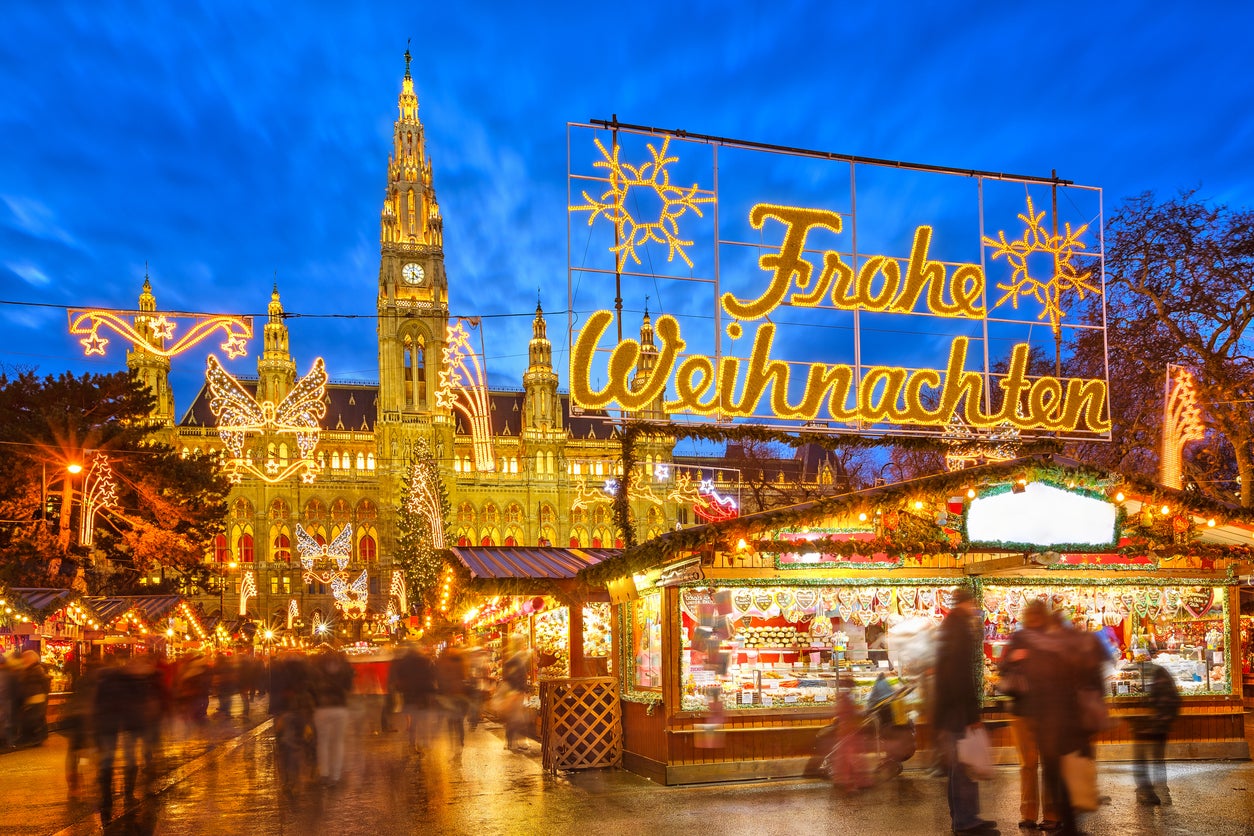
Vienna’s Christmas markets trace their roots back to the 13th-century and are among the most famed in Europe. Perhaps its most famous is Christkindlmarkt on the Rathausplatz. Browse 96 stalls, selling everything from Christmas jumpers and socks, hand-forged silver jewellery, Tyrolean carvings and handcrafted lanterns, before sipping a mulled wine (known locally as gluhwein). An incredible 75 per cent of the products food and drinks on offer are organic and sustainably grown, meaning you can feel good about your purchases. For children, there's a 12 metre-high multi-level carousel and in the park a Christmas world with reindeer train, nativity scene trail, children's chalet and a designated skating ring.
Elsewhere, the romantic Christmas Village on the University Campus is also a popular meeting point during the run-up to Christmas, especially for students. With a children's railway and an old-fashioned carousel, the Christmas Market on the Campus is also a big hit with families. Two curling lanes are also available if you fancy some healthy competition.
Where to stay: Located in Leopoldstadt, this socially conscious hotel sees hospitality staff working alongside refugees to welcome guests to this boutique hotel. At Christmas, this is the perfect place to be reminded of the need to remember others.
Read more: Best Christmas markets in the UK
Strasbourg, France
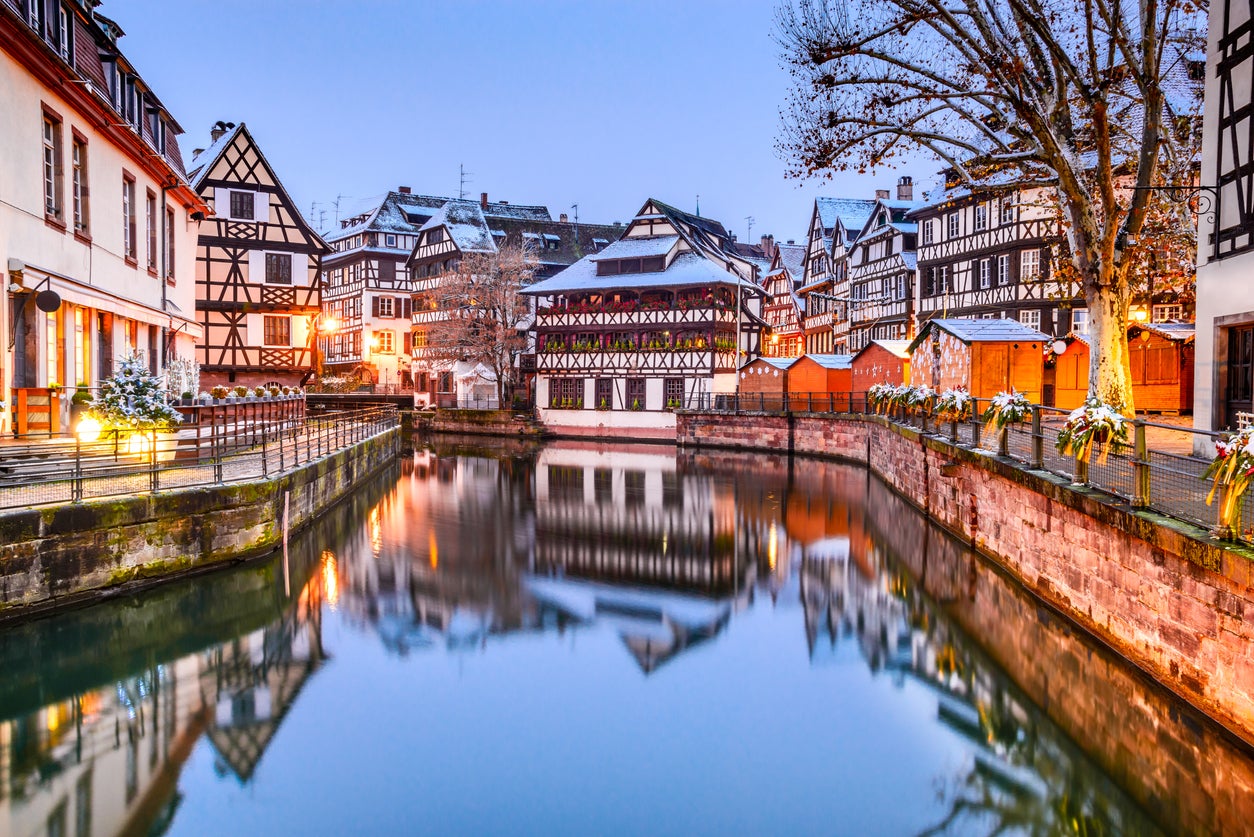
This picture-perfect northern French city is the ideal setting for a Christmas market that seems straight out of a movie. The market stalls fit seamlessly between the timber-framed buildings, and in some areas it feels like you’re transported back centuries.
In fact, Strasbourg’s oldest market dates back to 1570. Found around Place de la Catedrale and Place Broglie, it is the top choice for both food and gifts, with traditional German market foods such as gingerbread, the production of which Strasbourg has become famed for, sold alongside French dishes like crêpes.
Strasbourg’s other markets are among the most characterful on the continent, with less of a focus on tourism and more on sustainability and local produce. The OFF Market in Place Grimmeissen, in the heart of Strasbourg's famous district of La Petite France, features activities, stalls and events on the theme of solidarity and respect for the environment: organic and local tarts flambées, vintage thrift stalls, toy manufacturing workshops, and more. Explore a friendly atmosphere with a diverse programme of events on the topic of conscious consumerism.
Where to stay: The four-star BOMA easy living hotel is located just 300 metres from the pretty Petite France area of the city and 10 minutes from the main markets.
Read more: 10 best cheap hotels in Paris – where our expert stays when on a budget
New York City, USA
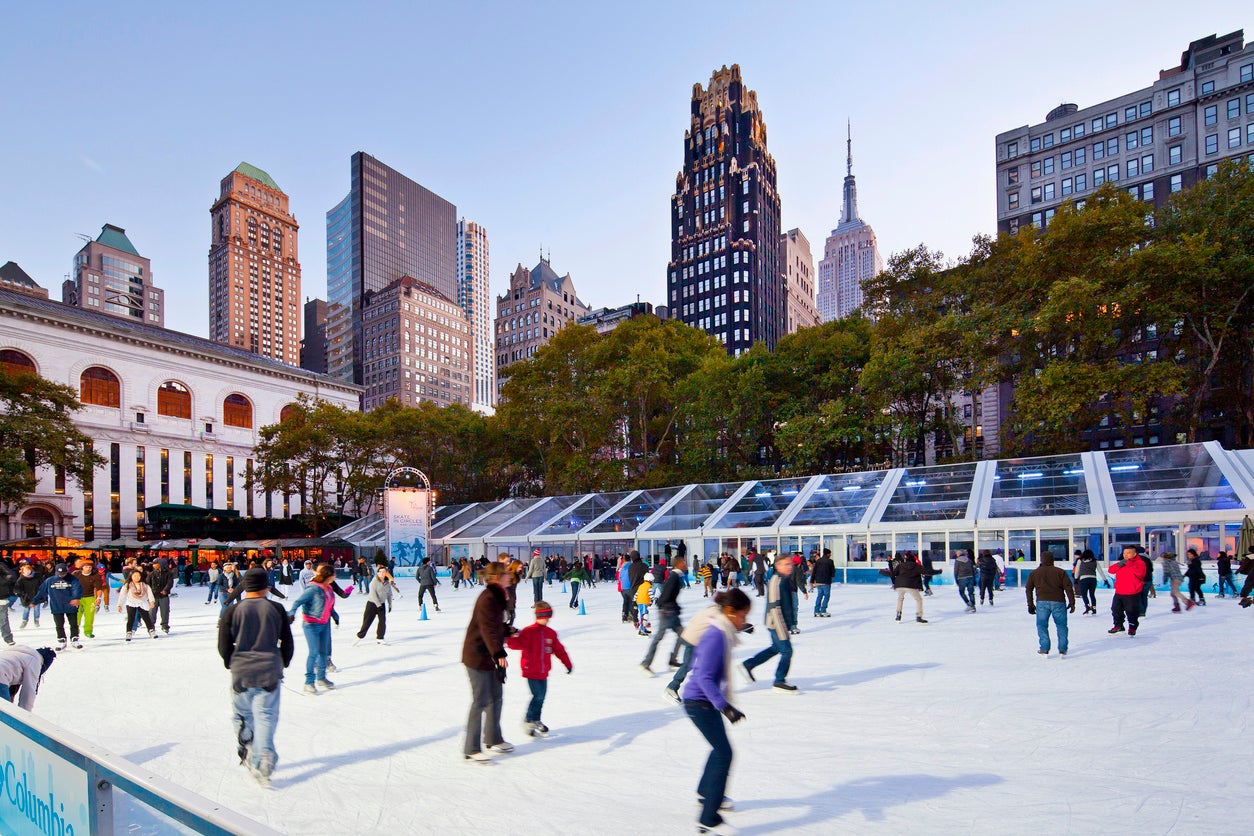
America’s quintessential Christmas destination, serving as the backdrop to Christmas films including Elf, Home Alone 2 and Miracle on 34th Street, was always going to have some of the country’s best markets. The city lends itself to an especially ‘Christmassy’ Christmas – from the flurries of snow, to the sparkles of the skyscrapers – and its markets add to the festive feeling.
Several of the New York’s markets are located in the vicinity of its main landmarks. The Grand Central Terminal is one such location, where a large indoor market offers visitors an enormous range of gifts ranging from clothing and jewellery to toys and decorations. Bryant Park is another, overlooked by the Empire State Building, where wooden stalls are replaced by little glass boutiques that sit around an ice rink.
Where to stay: If you really want to embrace the festive spirit, make like Macaulay Culkin’s character in Home Alone and check-in to the Plaza Hotel. Expect excellent service and remarkable history – at a price.
Read more: The best New York hotels for 2025 - where to stay in Manhattan, Brooklyn and more NYC hotspots
Prague, Czech Republic
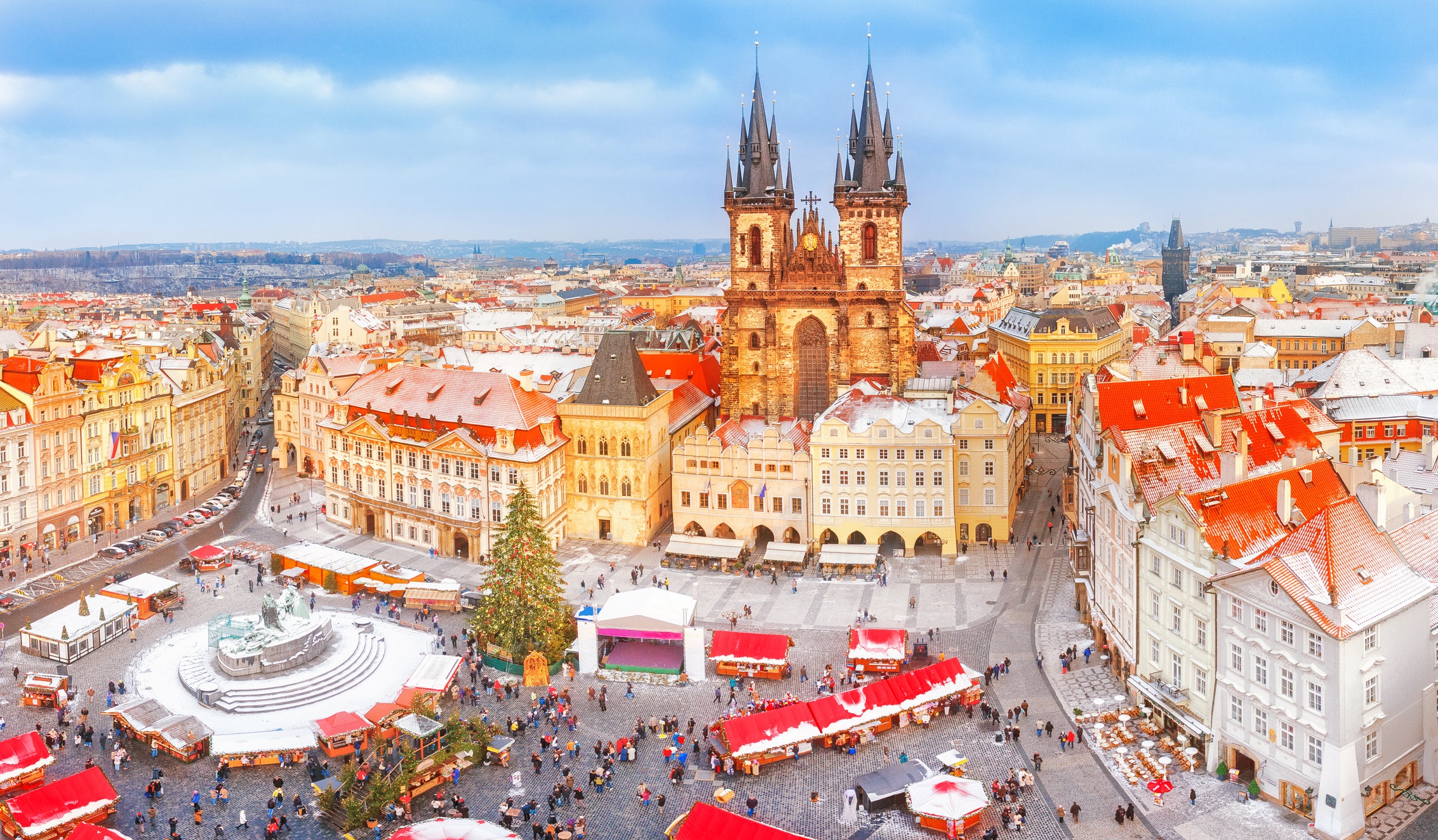
The Czech capital is an especially romantic city for experiencing Christmas markets. Other than the odd drizzling of snow, Prague is the polar opposite of New York; the Big Apple’s modernity, crowdedness and vastness contrasted with medieval and gothic buildings, quaint streets and squares and the city’s signature landmark, the Charles Bridge, where a series of low lights helps visitors move around on foggy, snowy evenings.
These squares and buildings play host to atmospheric markets between November and the end of December, with a Czech spin on the usual German delights (think traditional pastries, gingerbread and dishes such as roast pork, though mulled wine and roasted chestnuts are especially popular here too).
The market on the cobbled streets of the Old Town Square is the largest in Prague, with dozens of stalls lining the plaza next to the city’s Astronomical Clock and Tyn Church. In between the stalls, you’ll find nativity scenes and theatrical or musical performances, while many will climb the small observation bridge for a photo of the giant tree and surrounding buildings as the sun sets.
Where to stay: Situated around the corner from Wenceslas Square, the Grandium Hotel also has a wellness centre and spa for an indulgent stay.
Read more: The best winter sun holiday destinations just a short flight from the UK
Nuremberg, Germany
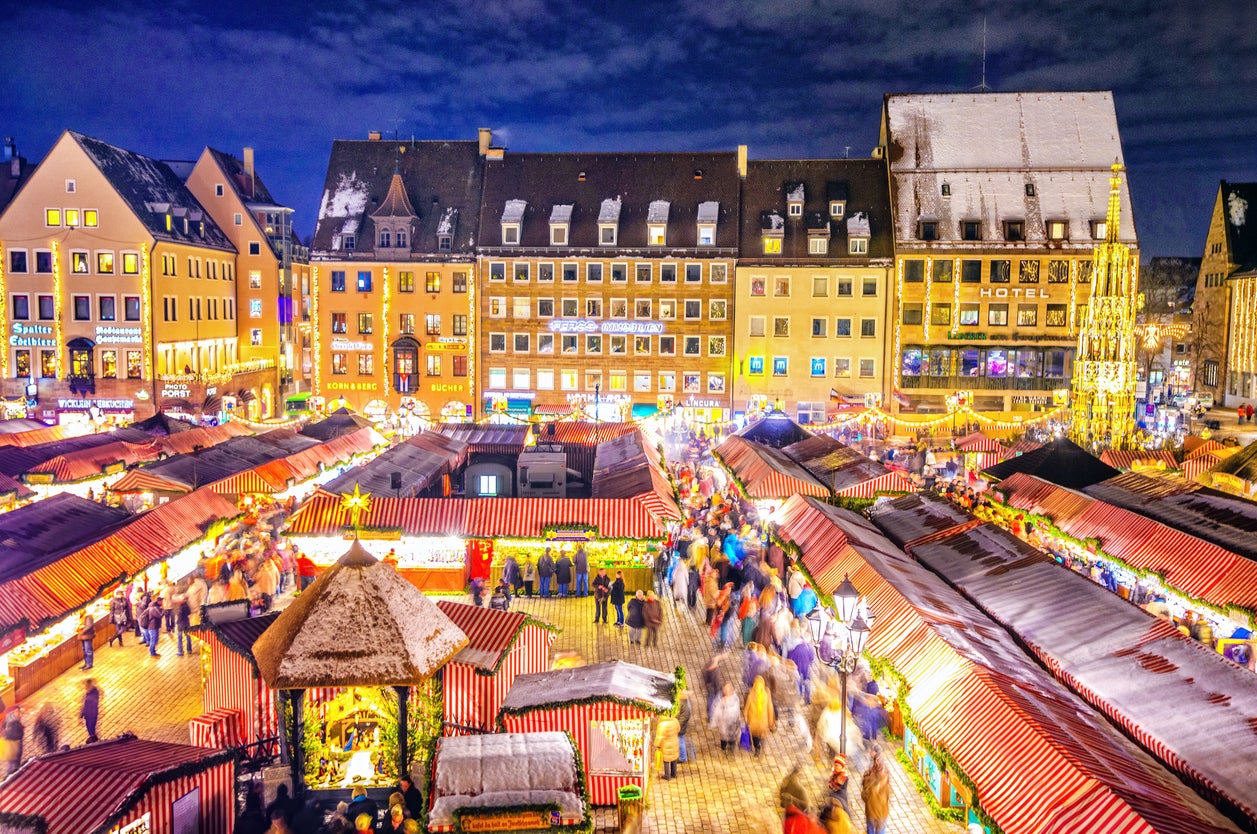
It was always going to be difficult to whittle down the list of German markets, and though Frankfurt and Berlin get special mention, Nuremberg makes this list based on its Christkindelsmarkt, one of the most famous Christmas markets on the planet.
Known as “the little city of wood and cloth”, it features row after row of mini stalls with a focus on traditional wares and food, plus plenty of workshops where visitors can make their own gifts. It takes place in the city’s main square, the Hauptmarkt, in the shadow of a magnificent 14th-century church.
Not far north lies the Sister Cities market, which sells traditional items from places that are Nuremberg’s sister cities, including San Carlos, Nicaragua and Atlanta. Expect pearls and silver jewelry from China, nesting dolls from Kharkiv, honey cookies from Kavala and enamel goods from Limousin at around 20 stalls, some of which are operated by charities related to that particular city.
Where to stay: The four-star design hotel TRIBE Baden Baden is just a four-minute walk from the picturesque Old Town.
Read more: The best Christmas markets in Germany
Tokyo, Japan
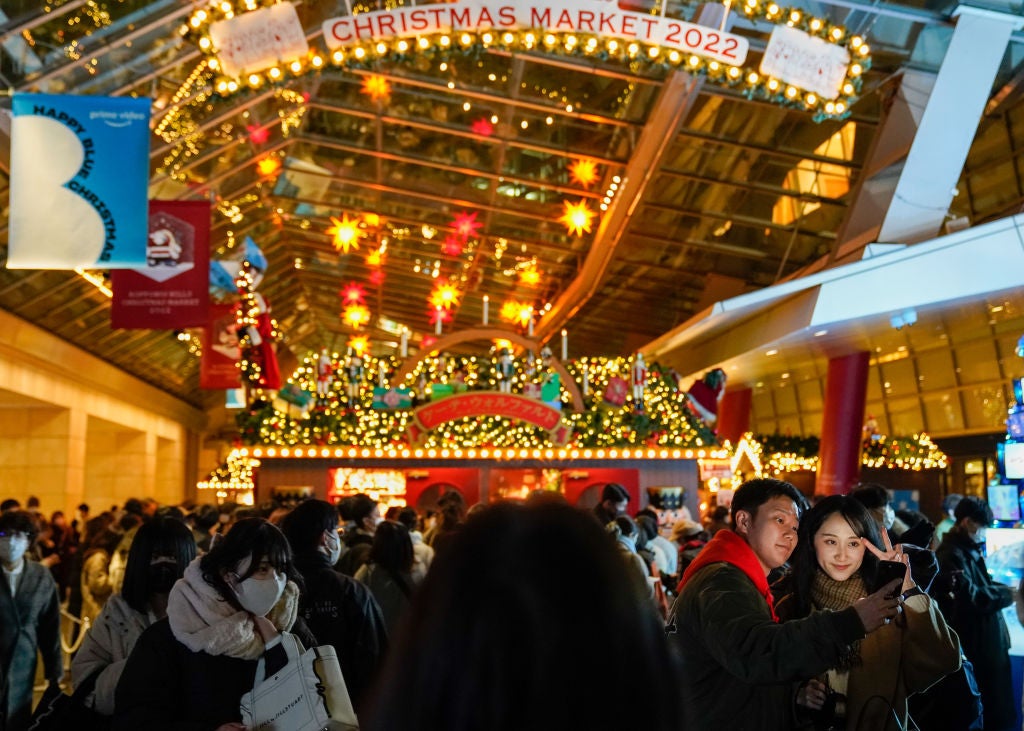
Bringing a taste of Europe to East Asia, the Meiji Jingu Gaien Christmas market is supported by the German Tourist Board and German Embassy, meaning visitors can expect many of the classic hallmarks of traditional European Christmas celebrations, including a 14-metre Christmas tree shipped in from Germany.
Taking place daily from 21 to November to 25 December in this central park, visitors can browse Alpine-style stalls selling handicrafts and gifts, including Steiff teddy bears, handmade ornaments, candles and Russian folk art. A Christmas pyramid and twinkling illuminations will light up proceedings, while food and drink on offer includes hot chocolate, churros, steins of beer and German sausages. There will also be live festive performances, workshops – and even Santa will make an appearance.
Festivities will also take place in Shiba Park, a new addition for 2025.
Where to stay: Founded in 1925 and renovated in 2017, the contemporary Nippon Seinenkan Hotel, is situated on the edge of Meiji Jingu Gaien and just a six-minute walk from Gaiemmae Station.
Read more: Japan is the beach holiday you’ve never thought of – but should have
Chicago, USA
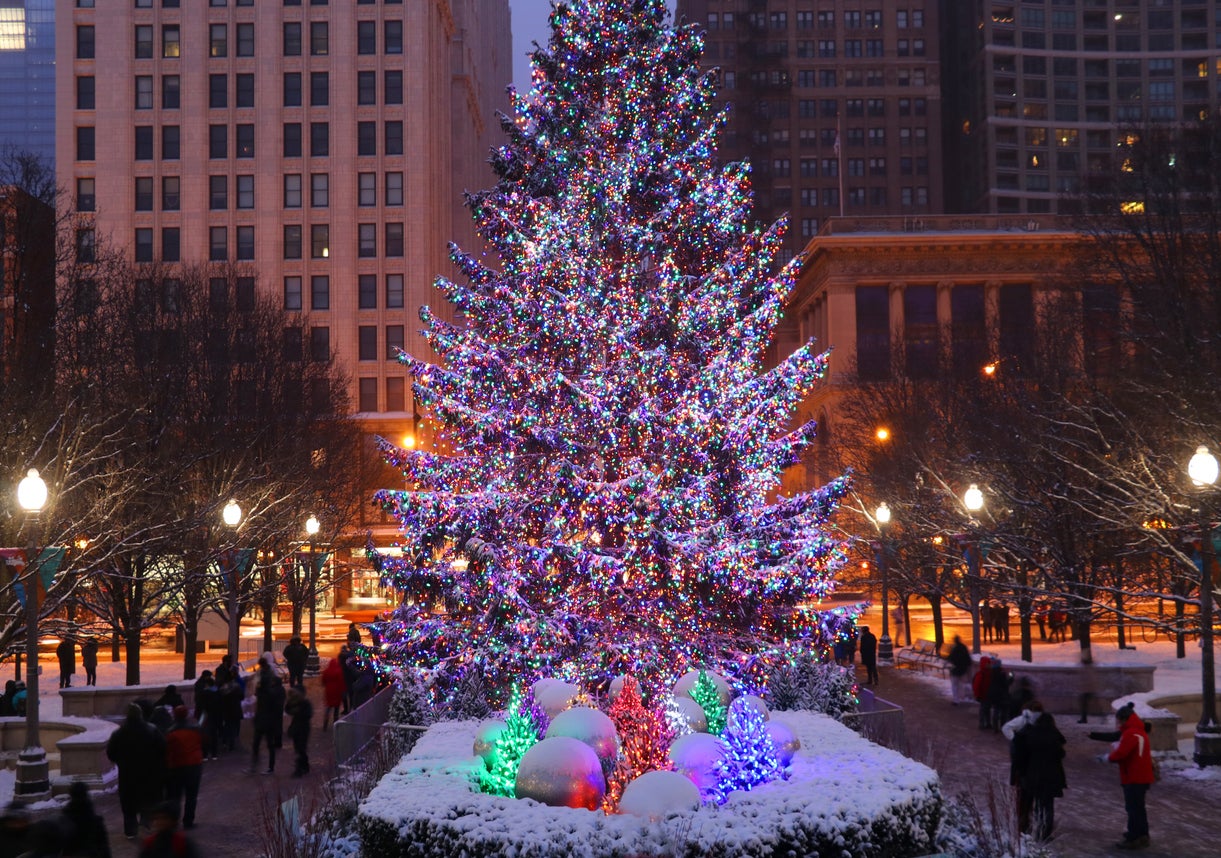
This is another North American city that only has few markets, but it goes big on the one it does have. Chicago’s Christkindlmarket is inspired by Nuremberg’s market of the same name, with locations in Daley Plaza, Aurora and Wrigleyville (which lie just outside of the city).
All have incorporated many of the traditional German touches, from German food to wooden stalls, and even though the surrounding skyscrapers will remind you you’re in the US, this is as close to a European market experience as you’re likely to get this side of the Atlantic. It’s also one of the few places on the list where snow is almost guaranteed.
Where to stay: Situated a three-minute walk from Daley Plaza, the landmark Staypineapple Chicago is a boutique four-star hotel that dates back to 1895.
Read more: Why your next city break should be to Chicago, not NYC
Hahndorf, Australia
Australia’s oldest German settlement is renowned for putting on a solid show come Christmas time and 2025 is no exception. This year, local officials are promising “the biggest celebration yet” with three action-packed days of seasonal revelry. In addition to the usual festive lights, there’s a design market at Alec Johnston Park, a Santa hub, street performers, food, music, a “family activation zone”, DJs and plenty of fun for the kids. Lions Assistance Dogs will be wrapping gifts in Santa’s Hub for a gold coin donation and with over 150 businesses in the Main Street area, there’s plenty of gift inspiration, should you need it.
Where to stay: Situated just off Hahndorf’s busy Main Street, Amble at Hahndorf is the perfect spot to rest weary heads after your festive celebrations.
Read more: Why Perth has more to offer than just Ashes cricket this winter
San Francisco, USA
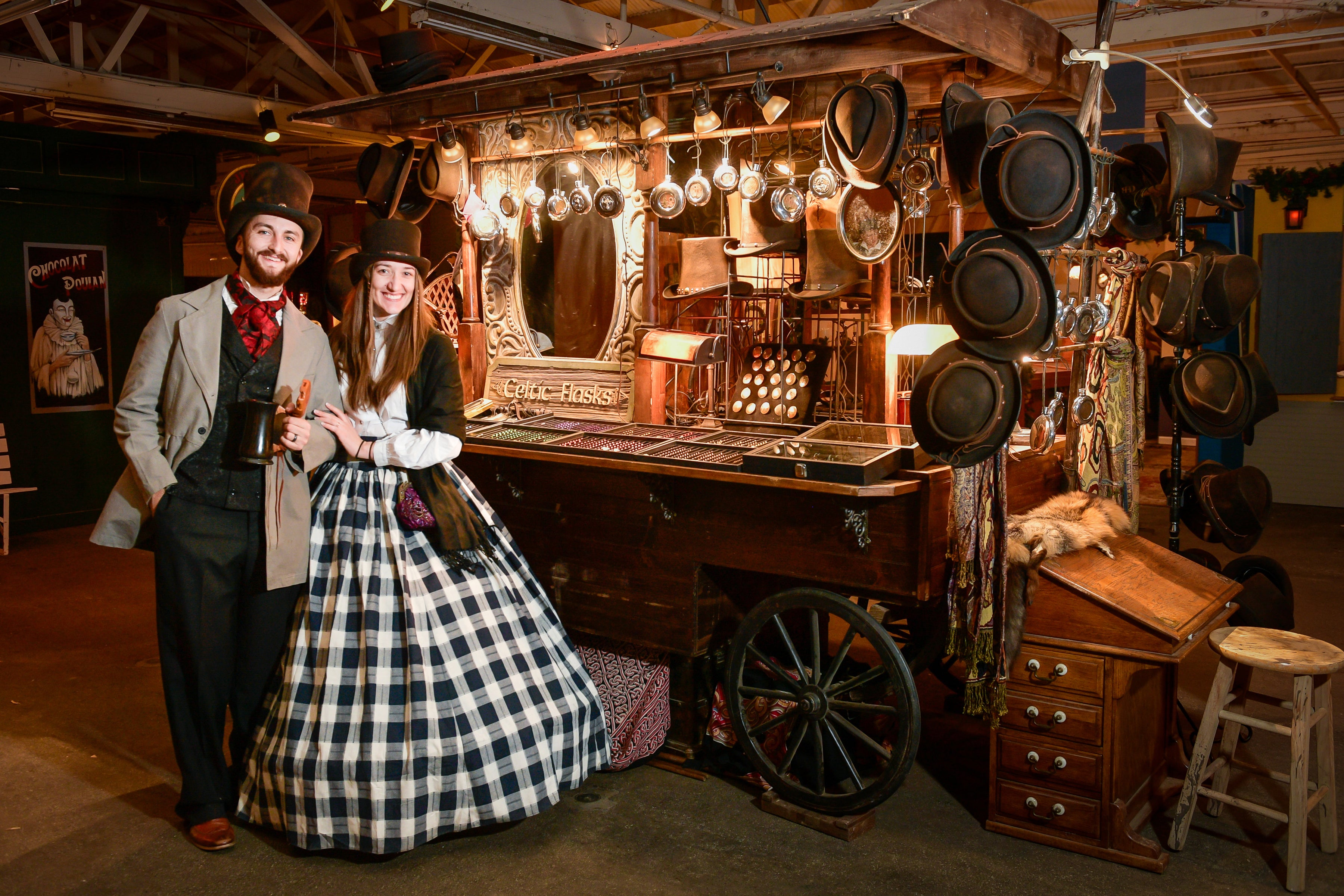
If you’ve ever wondered what life was like in 19th-century England, head to San Francisco’s Great Dickens Christmas Fair. Every Saturday and Sunday until 21 December, you can get a taste of the UK over 5,000 miles (and 200 years) away.
One of the more unusual Christmas markets, it offers an array of modern British specialties – think fish and chips, bangers and mash and imperial pints – as well as a slew of traditional touches, from Victorian-style pubs and servings of afternoon tea to 19th-century “celebrities” and Dickensian performers.
It’s almost more of a festive party than a traditional Christmas market, though visitors will find Santa Claus making an appearance and over 100 stalls selling everything from jewellery to books and handicrafts.
Where to stay: The Great Dickens Christmas Fair is situated in Daly City, which is on the city’s red line. Catch this from Civic Centre/UN Plaza, which is just a seven-minute walk from the sophisticated San Francisco Proper.
Read more: How to spend a day in Haight-Ashbury, San Francisco’s historic home of counterculture
Join our commenting forum
Join thought-provoking conversations, follow other Independent readers and see their replies
Comments